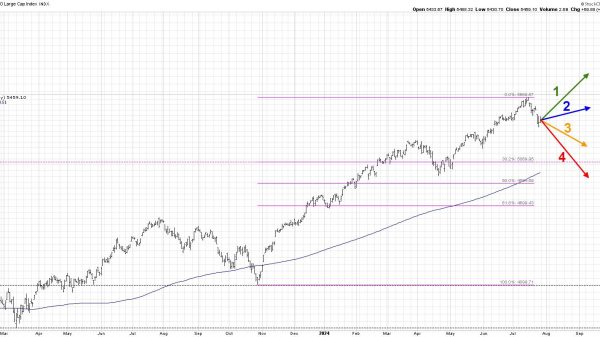Woke Racism: How a New Religion Has Betrayed Black America by John McWhorter Portfolio/Penguin, 2021, xv + 201 pp.
John McWhorter is an eminent linguistics professor who teaches at Columbia. He is himself black, and he argues that “woke” racism does not help blacks and other minorities. It has, he says, become a religion, and those who question it are dealt with severely by its acolytes, to the detriment of a free society. He does not confine the book to criticism but also proposes a three-step program aimed to help blacks succeed.
What is “woke” racism? According to McWhorter, it holds that all aspects of American society are racist, having as their function the suppression of nonwhites to the advantage of the dominant white elite. Society consists entirely of a struggle for power.
It is rarely stated explicitly, but decisively steers its adherents’ perspective on existence and morality. Third Wave Antiracism’s homily par excellence would be the following: Battling power relations and their discriminatory effects must be the central focus of all human endeavor, be it intellectual, moral, civic, or artistic. Those who resist this focus, or even evidence insufficient adherence to it, must be deeply condemned, deprived of influence, and ostracized. (pp. 10–11)
A particularly insidious part of the “woke” ideology is an extension of the notion of “white privilege,” under which whites are condemned for virtually anything they do or say, and which often rejects their anxious efforts to show their antiracism as inept or “actually” racist.
To anticipate a question, yes, I do believe that to be white in America is to automatically harbor certain unstated privileges in terms of one’s sense of belonging. Figures of authority are the same color as you. You are thought of as the default category. You are not subject to stereotypes. Although, these days, you actually are subject to one—that of the menacing, anal “whiteness” monster the Elect tar you as—but we shall not quibble. But the issue here is not whether I or anyone else thinks white privilege is real, but what we consider the proper response to it. The Elect are to ritually “acknowledge” that they possess white privilege, with an awareness that they can never be absolved of it. Classes, seminars, and teach-ins are devoted to corralling whites into this approach to the matter. (pp. 30–11)
McWhorter calls our attention to a large number of incidents in which people have lost their jobs because they have said something to which a proponent of the “woke” ideology takes exception. For example, in 2020,
David Shor, a data analyst at a progressive consulting firm, lost his job. He had tweeted a study by a black Ivy League political science professor, Omar Wasow, showing that violent black protests during the long, hot summers of the late 1960s were more likely than nonviolent ones to make local voters vote Republican. Shor’s intent was not to praise this, but to disseminate the facts themselves as a glum announcement—one that had been covered eagerly by liberal media shortly before this. Certain parties on Twitter, though, didn’t like a white man tweeting something that could be taken as criticizing black protest in the wake of George Floyd’s murder. The consulting firm took heed and expelled Shor. (p. 4)
I have so far confined myself to reporting McWhorter’s account of “wokeness,” as it seems to me in large part convincing, but at one point in his analysis, he goes astray, though fortunately this does not weaken the main thrust of his argument. He says that the insistence that absolute credence be given to the “woke” doctrines, without regard to evidence, makes the “woke” movement a religion. He is free to define “religion” in this way, but he intends more than this. He thinks that his characterization applies to Christianity and other theistic religions, and from that he goes on to suggest that the separation of church and state mandated by the First Amendment should apply to the “woke” ideology as well.
He says,
Certain questions are not to be asked, or, if asked, only politely. The answer one gets, despite being somewhat half-cocked, is to be accepted. The Christian is allowed to ask why the Bible is so self-contradictory, or why God allows such terrible things to happen. But no one has had a smackdown answer for two millennia anyway, and what’s key is that you believe. One internalizes an etiquette that it stops there. (p. 25)
One could well ask McWhorter whether his account of the Abrahamic religions rests on evidence. It is my impression, for what it is worth, that some Christians and Jews do have what they take to be satisfactory answers to the problem of evil, and the many who do not usually would not say that they are commanded to believe in God despite the absence of a satisfactory explanation, in defiance of reason, though there are no doubt some who do say this. Rather, I would think the more common view of believers is that the weight of the evidence favors belief, though the existence of evil does indeed count as a problem.
When he turns from theology, McWhorter does much better, and especially so in his suggestions on how to improve the lives of blacks. He argues that the “woke” ideology impedes black progress in that that it encourages blacks to blame all their problems on racism rather than to consider what positive steps they can take their condition.
If it is objected that this is “blaming the victim,” McWhorter responds that he has a positive program that will enable young blacks to succeed, and his program has great merit. First, he calls for an end to the war on drugs because the illegal market in drugs tempts young black men to a life of violent crime. “Its eclipse would create a black American community in which even men dealt a bad hand would likely work legally, spells in prison would be rare, and thus growing up fatherless would be occasional rather than the norm” (p. 141). Second, he favors teaching reading through phonics—i.e., sounding out the letters of a word, with concentration on a word’s spelling rather than the “whole word” method, which is difficult for children who come from homes in which books are not an important part of daily life. Finally, he proposes encouraging vocational training rather than going to college, which is not suitable for everyone. “We must revise the notion that attending a four-year college is the mark of being a legitimate American, and return to truly valuing working class jobs” (p. 143).
McWhorter deserves our thanks for his thoughtful account of “wokeness.”




















